Disclaimer: This article has been fact-checked by a qualified veterinarian using information available at the time of review. Veterinary medicine is continually evolving and changing. Dog owners are urged to discuss their dog’s care with their veterinarian and this article should not be taken as a substitute for medical advice for your pet.
It can be very disconcerting if you notice that your dog seems to be hiding a lot. Maybe you’re noticing them hiding in specific rooms or in the presence of certain people, or maybe your dog is hiding all the time. If your dog is hiding and acting strange, this is cause for concern. There are multiple reasons that your dog may begin to hide, and almost all of those reasons require your attention to fix. Let’s look at what things may cause your dog to hide and how you can stop each one.

The 8 Reasons Your Dog May Be Hiding
1. Loud Noises
Loud noises can be especially stressful for dogs. Things like fireworks, thunderstorms, and construction can all create loud, sudden noises that can cause your dog to flee and hide. Dogs simply don’t understand what’s causing these noises, and loud, unexpected noises may trigger their fight-or-flight response.
There are many ways to manage issues with loud noises, including medications, supplements, training, and making adjustments in your home to make the sounds less noticeable. Hiding from loud noises is a lot less dangerous than trying to escape the home, so encourage your dog to bunker down in a safe spot.
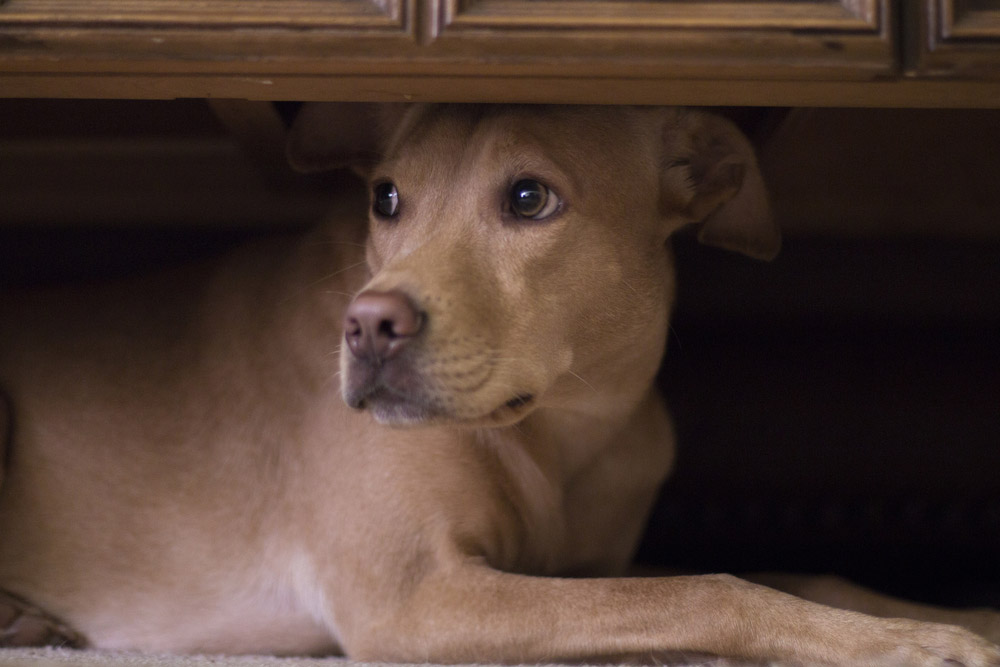
2. Change
Change can be hard on all of us, and even though cats are notorious for disliking change, many dogs aren’t fans of it either. Any type of change can be hard for your dog and cause them to hide. Some changes that are extreme, like bringing home a new baby or moving to a new home, can be easy to identify. Some changes that may stress your dog may be more difficult to identify, though.
It may take time to help your dog adjust to a permanent change in your household. Provide them with lots of positive reinforcement when they display good behavior to help reduce their stress.
3. Stress or Anxiety
Dogs aren’t immune to suffering from anxiety and stress, and these unpleasant feelings can cause your dog to want to hide. Stress can be caused by a multitude of issues, including behavioral problems. The best way to manage stress and anxiety for your dog is to identify the cause. The cause of their feelings will determine how best to handle the situation.
Some dogs experience anxiety for no particular reason at all, which often requires prescription medications to manage. In some cases, the help of a behaviorist or experienced trainer may be necessary.
If you’re concerned about your dog’s behavior we suggest you speak to an online vet to avoid the additional stress of an in-person vet visit.
If you need to speak with a vet but can't get to one, head over to PangoVet. It's our online service where you can talk to a vet online and get the advice you need for your pet — all at an affordable price!

4. Fear of Certain Areas
While changes in certain areas may cause your dog to become stressed or fearful, your dog may also attempt to hide if they experience something unpleasant in certain areas; think dogs at bathtime or a vet clinic. These can be areas of your home, the car, the vet clinic, or even the park and other places your dog used to enjoy.
Traumatic experiences can be difficult for your dog to work through, and they’ll need your help and support as they do. If your dog seems fearful of something like a new decoration or piece of furniture, you have the option to either help your dog slowly become accustomed to the item or get rid of it.
5. Fear of Certain People or Animals
Some dogs are fearful of other animals in general, causing them to attempt to hide when in the presence of that animal. This is often cats in the average household, but dogs may also be fearful of large animals, like horses, and even small animals, like birds and guinea pigs. Dogs may also be fearful of certain people. This can be caused by negative experiences with that person, or something about them that is unusual and scary to the dog, like wearing a hat or carrying plastic bags.
If your dog suddenly becomes fearful of a specific person or animal in your home or life, then you may need to investigate to ensure a traumatic experience hasn’t occurred and then work on helping your dog feel safe and comfortable again. If a negative experience hasn’t occurred, it may simply take time and patience to help your dog get over their fear. Since dogs process things differently than we do, they may stay fearful after a perceived scary experience.

6. Hiding Something from You
If your dog seems to be sneaking off at unusual times and for no particular reason, you may need to investigate their hiding place. It’s not uncommon for dogs to be hiding and act strange when they’re doing something they know they shouldn’t be doing. If your dog gets ahold of a children’s toy, food item, piece of trash, or other items they know they’re not supposed to have, you may notice them sneaking away to chew on, play with, or eat the item. This is especially a problem with dogs that tend to eat items they can’t digest, which may lead to intestinal obstructions and emergency surgery.
To prevent this problem, make sure to keep items your dog isn’t supposed to have well out of their reach. Even the most well-trained dogs may attempt to sneak off with something that seems too good to pass up.
7. Comfort
You know how comfortable you feel when you’re snuggled up under a heavy blanket on a cold day? That may be similar to how your dog feels in their “hiding” place. Some dogs prefer a small, cozy space to spend their time, which is what makes kennels and crates so effective for many dogs. If your dog simply prefers spending time in a quiet, calm spot away from everyone else, then that’s totally fine.
You’ll likely notice your dog doing this from a young age, though, so if you have an older dog that suddenly starts seeking out hiding places to rest, you should have them checked by the vet and evaluate any stressors that may be in your home.

8. Illness
Dogs will often go into hiding when they’re not feeling well. They don’t understand what’s going on when they don’t feel well, which may cause them to want to hide away. It’s a natural instinct to want to be alone in these circumstances.
If your dog begins hiding frequently and also exhibits other signs of illness or pain, like lethargy, loss of appetite, and yelping or whining, then it’s definitely time for a vet visit sooner rather than later.

How to Get Your Dog Out of a Hiding Place
Although the technique for getting your dog out of a hiding place can vary among individual dogs and situations, many dogs will usually come out with lots of coaxing and positive reinforcement. Help them feel safe and comfortable enough to want to come out of their hiding spot. You may even need to pull out their favorite treats or toys to convince them that coming out of their hiding spot is better than staying in it.
If your dog is hiding in a place that is difficult to access or unsafe, make sure to block that area off after getting your dog out of it. You don’t want your dog to make a habit of hiding in places in which you can’t easily get to them.


Conclusion
If your dog is hiding all of a sudden it can be cause for concern, so it’s important that you investigate the potential causes of your dog’s hiding. In many cases, you do have options for convincing your dog to come out of their hiding place and helping them feel comfortable out in the open again. You’ll need to carefully evaluate your dog’s other behaviors to determine if they need to see a vet.
Featured Image Credit: Alzbeta, Shutterstock
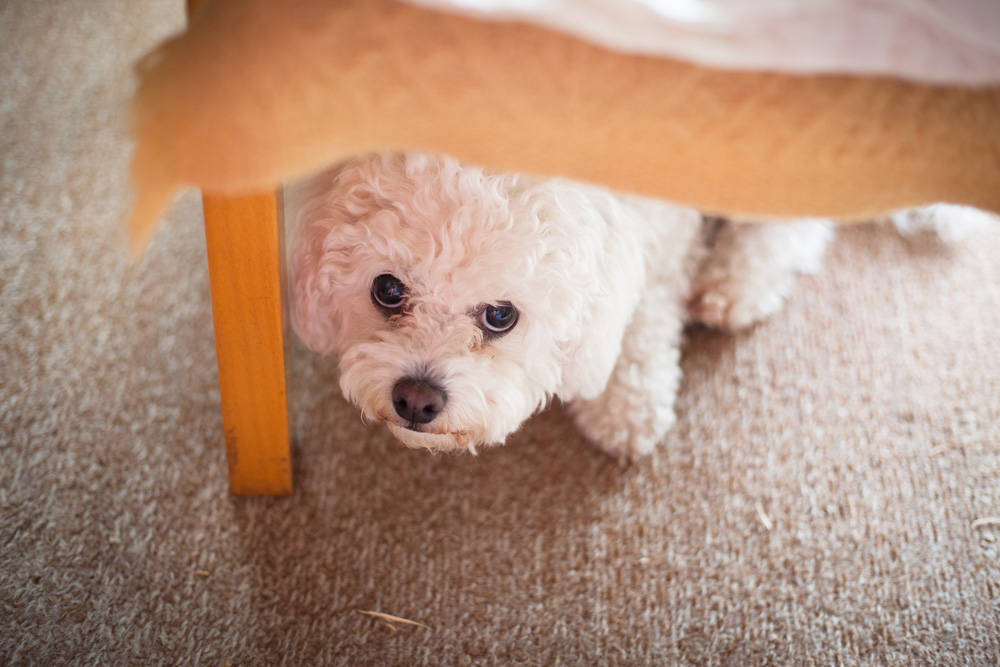

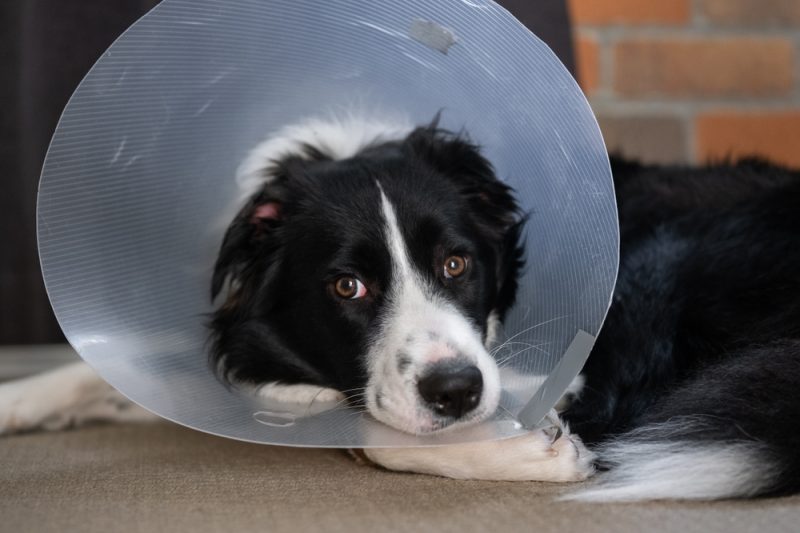

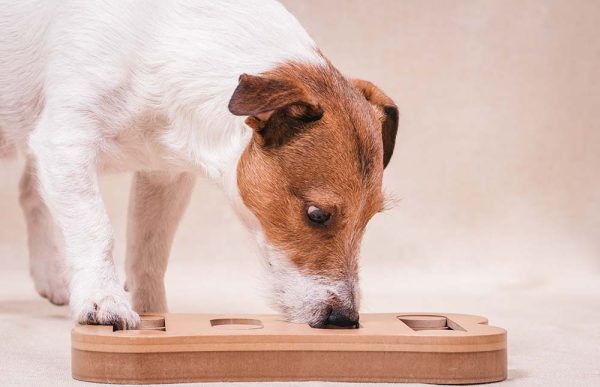







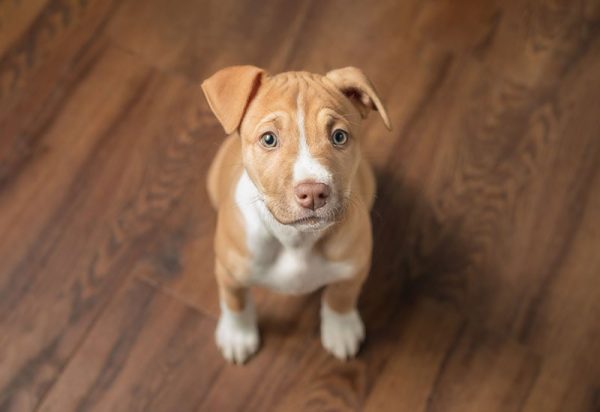






2 Responses
When my son visits me from mainland to Hawaii
My dog hides and now his moving home for good . My dog will not come out of hiding when my son is here. What should I do? I. Also try giving her favorite treats or toys. But it doesn’t work.